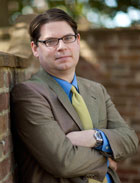My interest in the relationship between generosity in marriage and generosity outside of marriage was first stimulated by the graduate work of Young Kim, who recently received his Ph.D. in sociology from the University of Virginia. Based upon his life experiences in South Korea and his reading of the seminal work of Edward Banfield on “amoral familism” in Italy, he wondered if familism in the U.S. was linked to lower levels of civic engagement. The idea was that familism may foster a domestic or tribal orientation that is not conducive to civic engagement–especially what Robert Putnam has called “bridging” forms of civic engagement where persons deal with individuals, groups, and organizations who don’t necessarily share their religion, race/ethnicity, or worldview. Kim found some support for this idea in his research. To wit, familism was linked to lower levels of non-religious civic engagement.
I’m interested in building on this line of research by specifically exploring if investments in generosity in marriage (e.g., making sacrifices for your spouse) inhibit investments in generosity outside of marriage (e.g., volunteering). That is, is there a zero-sum relationship between generosity inside of marriage and generosity outside of marriage? Kim’s work suggests that there may well be. On the other hand, generosity in marriage may foster a kind of virtuous cycle, where generosity in marriage begets generosity outside of marriage. Thus, my research with the Science of Generosity Project will help to determine if a commitment to marriage competes or complements a commitment to the broader civil society.





Looking at the U.S. Census Bureau, married couples with children tend to volunteer more. This is interesting considering they are a demographic that is likely to have less time.
Looking at the U.S. Census Bureau, married couples volunteer more. This is interesting considering they are a demographic that is likely to have less time.
(Woops. Without children is more accurate.)